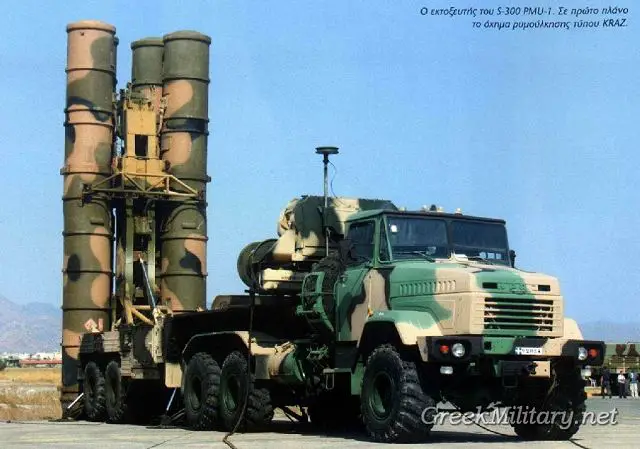Breaking news
Greece negotiates the purchase of missiles with Russia for its S-300 PMU1 air defense systems.
| 2015
|
|
|||
|
Defence & Security News - Greece
|
|||
|
|
|||
| Greece negotiates the purchase of missiles with Russia for its S-300 PMU1 air defense systems. | |||
|
Greece will continue to purchase new Russian arms, Greek Defense Minister Panos Kammenos said Wednesday during a visit to Moscow. The minister said Greece would continue military and technical cooperation with Russia, but arms purchase would be limited to replacement of old weapons.
|
|||
|
|
|||
 Hellenic Army Russian-made S-300 PMU1 mobile launch vehicle Hellenic Army Russian-made S-300 PMU1 mobile launch vehicle |
|||
|
|
|||
|
We will promote the maintenance of weaponry systems, such as Tor-M1, Kornet and S-300, which we have already bought," Kammenos said, according to the state-run Russian media, Sputnik.
Greece is negotiating with Russia for the purchase of missiles for its S-300 anti-missile systems and for their maintenance, Russia's RIA news agency quoted Greek Defense Minister Panos Kammenos as saying on Wednesday. Currently Greece Armed Forces are equipped with 2 batteries of S-300 PMU1 including 8 mobile launchers and 39 missiles. The S-300 PMU1 system was originally acquired by Cyprus from Russia in the mid-1990s, but was later transferred to Greece in return for shorter-range missiles and other military equipment, following a warning for pre-emptive military action by Turkey, CyprusMail reports. The S-300PMU1 was developed between 1985 to 1989, and was first shown at the 1992 Moscow Air Show. This air defense missile system can simultaneously engage up to 36 air targets by 72 missiles. In December 2013, the Greek Armed Forces have carried out the first-time test firing of the Russian-made S-300 surface-to-air missile (SAM) defence system at the Nato Missile Firing Installation (NAMFI) in Crete, Greece. In the beginning of 2008, the Greek ministry of national defense submitted a formal request for the purchase of 450 Russian-made armoured infantry fighting vehicle BMP-3 over a period of 15 years for 1.2 billion Euros. However Greek officials questioned the order of a vehicle that the country of origin publicly condemned and saw the order being suspended/cancelled in 2010. |
|||



















